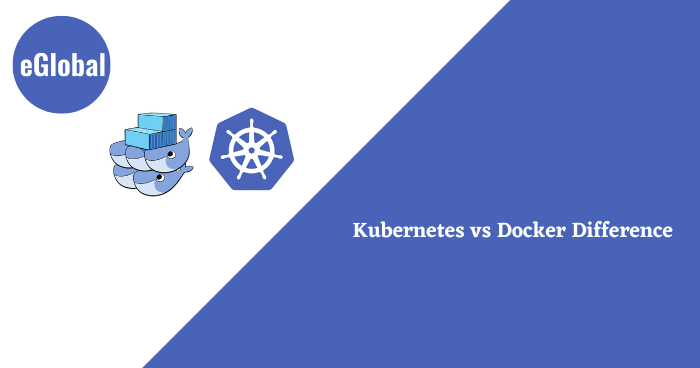

Containers are software packages that are designed to store components that can execute in any ecosystem. Using this technology no matter which data you are working on, whether it is public or private data, and could also be a developer’s workspace, they visualize the operating system and run it themselves.
Now let us talk about the leading containers which are currently available in the market – Docker, and Kubernetes.
A tool for packaging and operating containers is called Docker. With the aid of Docker, standardized containers can be created that contain all the code, dependencies, and libraries they need to run independently. Technically speaking, Docker is more of a technology for managing containers than a container format.
Since its original creation in 2013, Docker has dominated the current container revolution. The Open Container Initiative (OCI) image definition now refers to the Docker image format, which was contributed as an open standard.
Kubernetes also referred to as K8s, is a powerful, cutting-edge toolkit that streamlines and automates a variety of application life cycle tasks. K8s decide where to position containers to best utilize computer resources, “orchestrating” where these workloads are ultimately placed. Additionally, it has self-healing characteristics that enable containers that malfunction to be immediately repaired and restarted.
K8s was initially created as a Google internal product named Borg and released as open source in 2014. Kubernetes prevailed as the dominant architecture in the container orchestrator wars of the 1990s.
Docker may not be a suitable fit for monolithic programming and is best suited for microservices-based systems. Despite the fact that Docker containers are often effective, they always add extra layers, which increases complexity in comparison to applications operating directly on physical hardware platforms. Last but not least, containers provide further security concerns, necessitating a screening for widespread vulnerabilities
The key distinction between Docker and Kubernetes is that one of them is a container orchestration framework that defines and controls containers within a web application, while on the other hand, Kubernetes is a technology that is widely used in designing and operating containers. Containers are not created by Kubernetes. Instead, it makes use of a container realization technology like Docker.
The open-source orchestration program Kubernetes offers an API for managing where or how those containers will run. It enables you to execute your Docker operations and containers and assists you in overcoming some of the operational challenges that arise when scaling many containers that are distributed across several servers.
Docker and Kubernetes operate together. For packaging and delivering containerized programs, Docker offers an open standard. You can create, launch, save, and distribute container images with Docker. A Kubernetes network can simply perform a Docker build, however, Kubernetes is not a standalone solution. Incorporate extra tools and applications to handle security, governance, identity, and access together with continuous deployment processes and other DevOps techniques in order to optimize Kubernetes in production.
Kubernetes is the greatest option when it comes to managing big distributed systems with hundreds of linked microservices, integrating databases, credentials, and external dependencies, despite the fact that Docker Swarm is a competitor in this field.
Teams in this scenario must offer highly available services to satisfy customers ’ needs while iterating quickly. Although containers provide a scalable, lightweight delivery method for these apps, controlling them at scale presents difficulties.
Modern container management platform adoption leads to faster deployment times and costs savings. For instance, utilizing Kubernetes, Booking.com created 500 apps for the platform in just eight months. Although there is a learning curve and continuing maintenance challenges with utilities like K8, they are laying the groundwork for a scalable future of container administration.
Hope this Article is informative and useful for our readers, hire web developers India from leading custom web development company India for your future projects.

© 2017 All rights reserved.